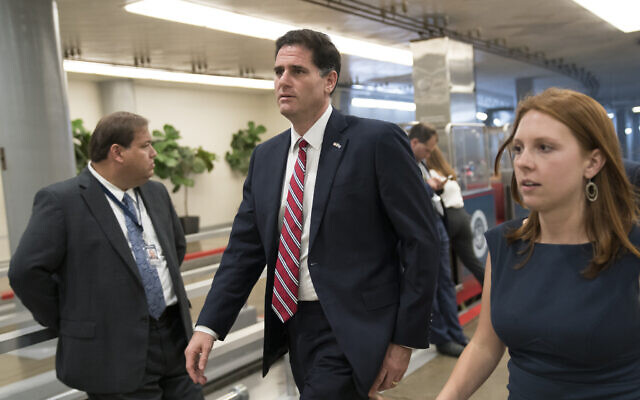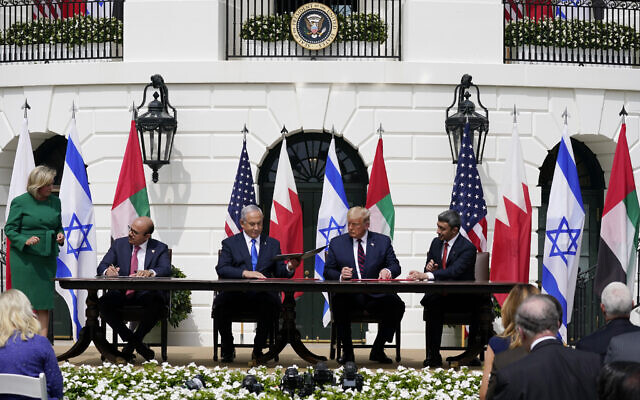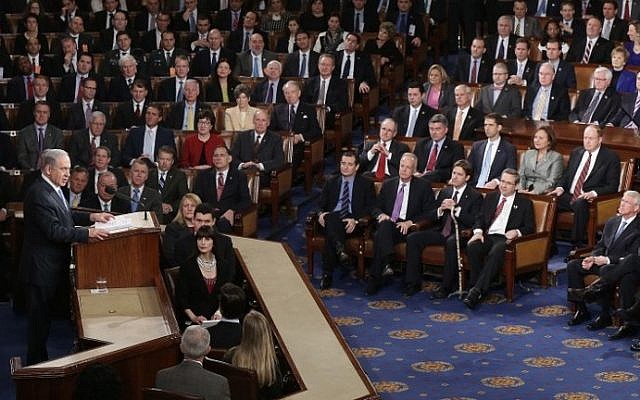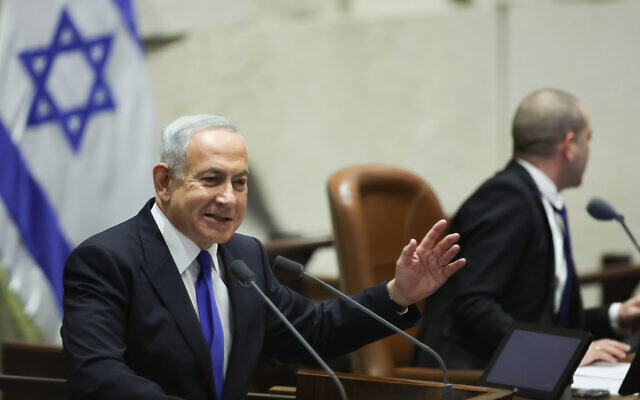Prime Minister Benjamin Netanyahu announced on Thursday that Likud MK Eli Cohen would be Israel’s next foreign minister, ending weeks of intrigue surrounding the high-profile role.
He will succeed Yair Lapid, who has also served as prime minister since last June.
In his speech to the Knesset ahead of his government’s swearing in, Netanyahu also announced that longtime confidant Ron Dermer – who is seen as a top candidate for the position – would instead become a strategic leader within the Prime Minister’s Office. Will be the Minister of Affairs.
It remains to be seen what responsibilities Dermer will be given, but he has expressed interest in being Netanyahu’s chief adviser on relations with Washington.
Cohen, 50, was head of the economy and intelligence ministries in previous Netanyahu governments.
In his military service, Cohen served in the Air Force, reaching the rank of major. He then began a successful business career before joining the Knesset in 2015 with the Kulanu party.

FILE: Ron Dermer, Israel’s ambassador to the United States, walks through the Capitol in Washington, Sept. 11, 2019. (AP Photo/J. Scott Applewhite)
The senior Likud lawmaker was targeting the role of Israel’s top diplomat, one of Israel’s most prominent and influential ministerial posts.
Veteran MK Israel Katz was also seeking the position. After meeting with Netanyahu on Wednesday evening, Katz reportedly walked out of the room, refusing to go second in a rotation deal with Cohen.
But Katz relented Thursday and will serve as energy secretary for two years before swapping seats with Cohen.
Netanyahu was looking for a way to bring Dermer into the government in a top role. He considered giving the former US envoy the foreign ministry, but was strongly opposed by senior Likud members.
Netanyahu is placing foreign policy at the center of his agenda, listing halting Iran’s nuclear program as one of his government’s top three missions during his speech on Thursday. And in government guidelines released on Wednesday, deepening and expanding the Abraham Accords was portrayed as a priority.
The incoming prime minister, who signed the Abraham Accords with Bahrain, the United Arab Emirates and Morocco in 2020, has spoken several times about the possibility of peace with Saudi Arabia.

Former President Donald Trump, center, from left, Bahraini Foreign Minister Khalid bin Ahmed Al Khalifa, Israeli Prime Minister Benjamin Netanyahu, Trump and United Arab Emirates Foreign Minister Abdullah bin Zayed Al-Nahyan, south of the Abraham Accords signing ceremony During the White House lawn, Sept. 15, 2020, in Washington. (AP Photo/Alex Brandon)
“I think we can have a new peace initiative that will make a quantum leap towards the achievement of both the Arab-Israeli conflict and ultimately the Palestinian-Israeli conflict,” he said. Said In an interview with Saudi broadcaster Al Arabiya. “And of course, I’m talking about the really remarkable historic peace with Saudi Arabia.”
Also, it is unclear how much power Cohen will have as Secretary of State to meaningfully influence these priorities. In Netanyahu’s previous governments, he showed a preference for handling consequential issues such as Iran’s nuclear program within the PMO, leaving the foreign ministry.
In the lead-up to the 2015 Joint Comprehensive Plan of Action, Netanyahu clashed openly with the previous Democratic US President Barack Obama over Iran. Although the current White House official, Obama’s VP Joe Biden, is pushing to revive the JCPOA nuclear deal, it looks increasingly unlikely, reducing a potential point of friction with Netanyahu.

Prime Minister Benjamin Netanyahu speaks about Iran during a joint meeting of the United States Congress in the House Chamber at the US Capitol on March 3, 2015 in Washington, DC. (WIN MACNAME/GETTY IMAGES/AFP)
In April last year, on-and-off talks began between Iran and France, Germany, Britain, Russia and China directly and indirectly between the United States to revive the deal.
But EU-mediated indirect talks between the US and Iran have been stalled for months as the Islamic republic faces protests over the death in custody of 22-year-old Kurdish Iranian Mahsa Amini.
Israel’s 37th government was to be sworn in on Thursday, marking Netanyahu’s return to power as the country’s most right-wing head of government.

Incoming Prime Minister Benjamin Netanyahu speaks at the swearing-in ceremony of his new government in the Knesset on December 29, 2022. (Yonatan Sindel / Flash90)
Some believe that the structure of the government will harm Israel’s standing on the world stage. On Wednesday more than 100 former Israeli diplomats and ambassadors signed on A letter to Netanyahu warning of damage to Israel’s global standing if the new government implements hard-right policies.
Former State Department staffers said they were worried about one. reaction that could damage Israel’s alliance with the US and undo progress on the Abraham Accords normalization agreements.
Netanyahu has brushed off concerns over his upcoming coalition, accusing political rivals of misrepresenting their agenda while vowing not to harm LGBTQ and other minority rights.
